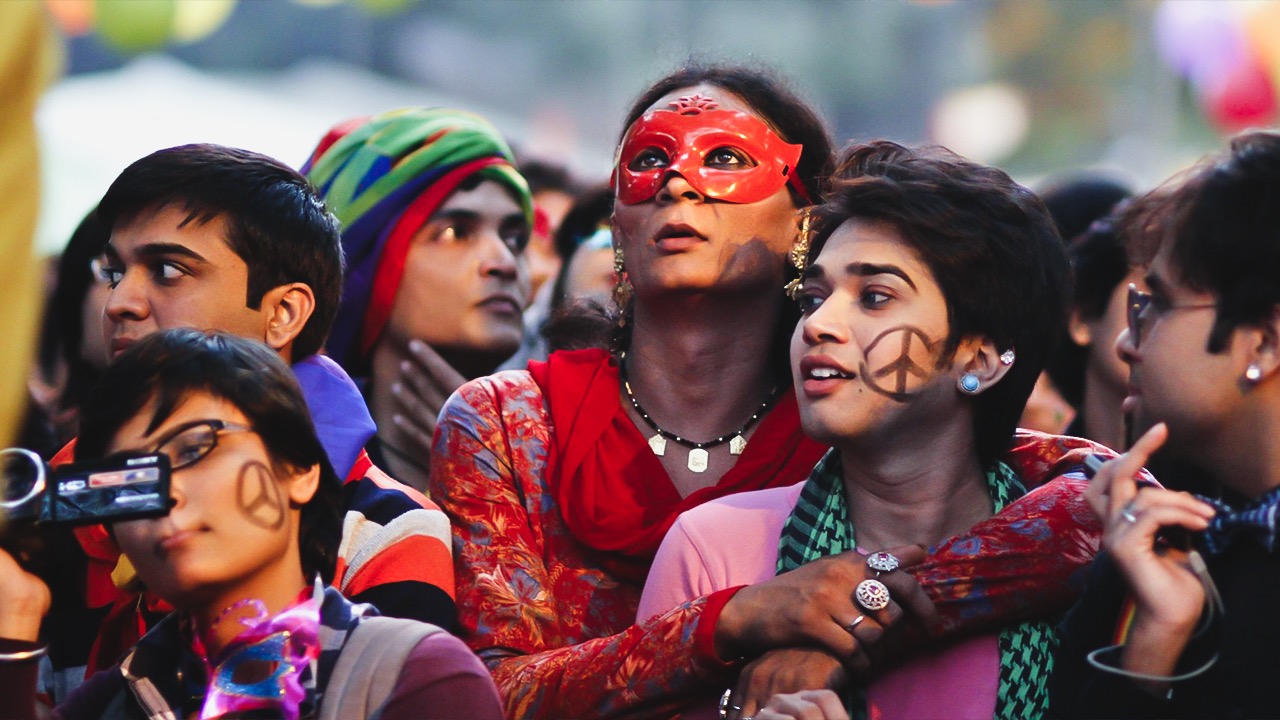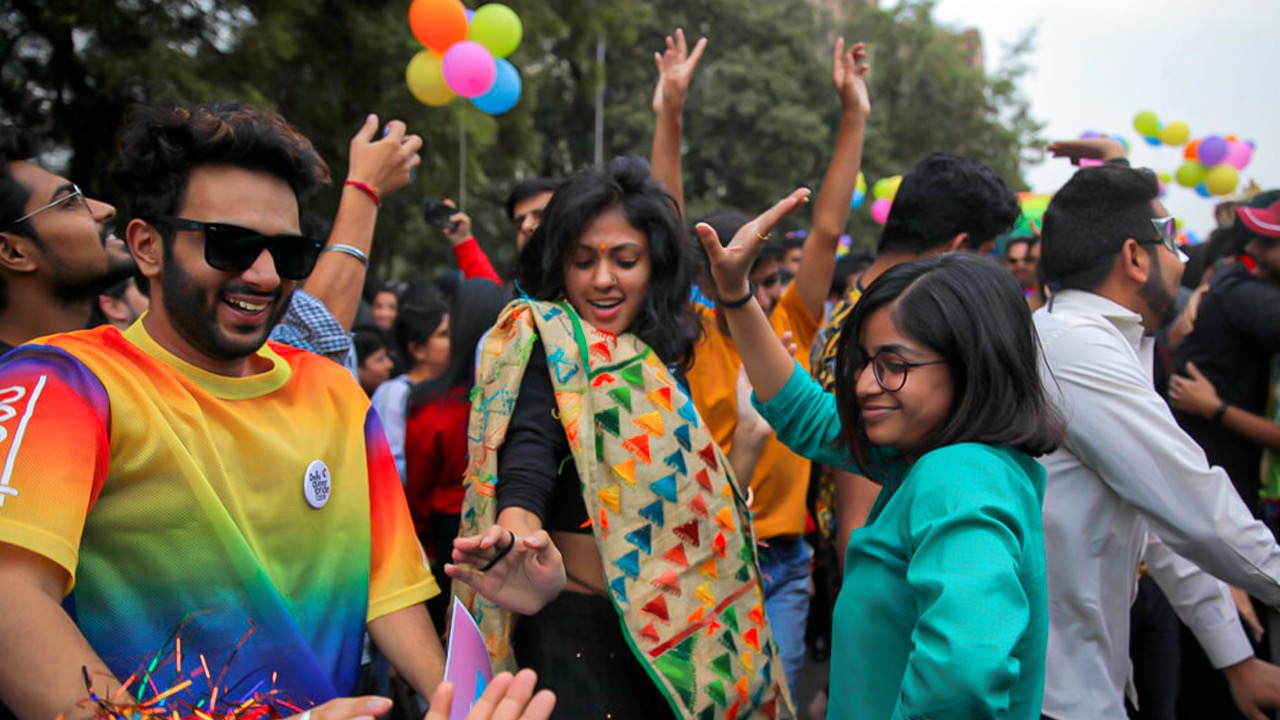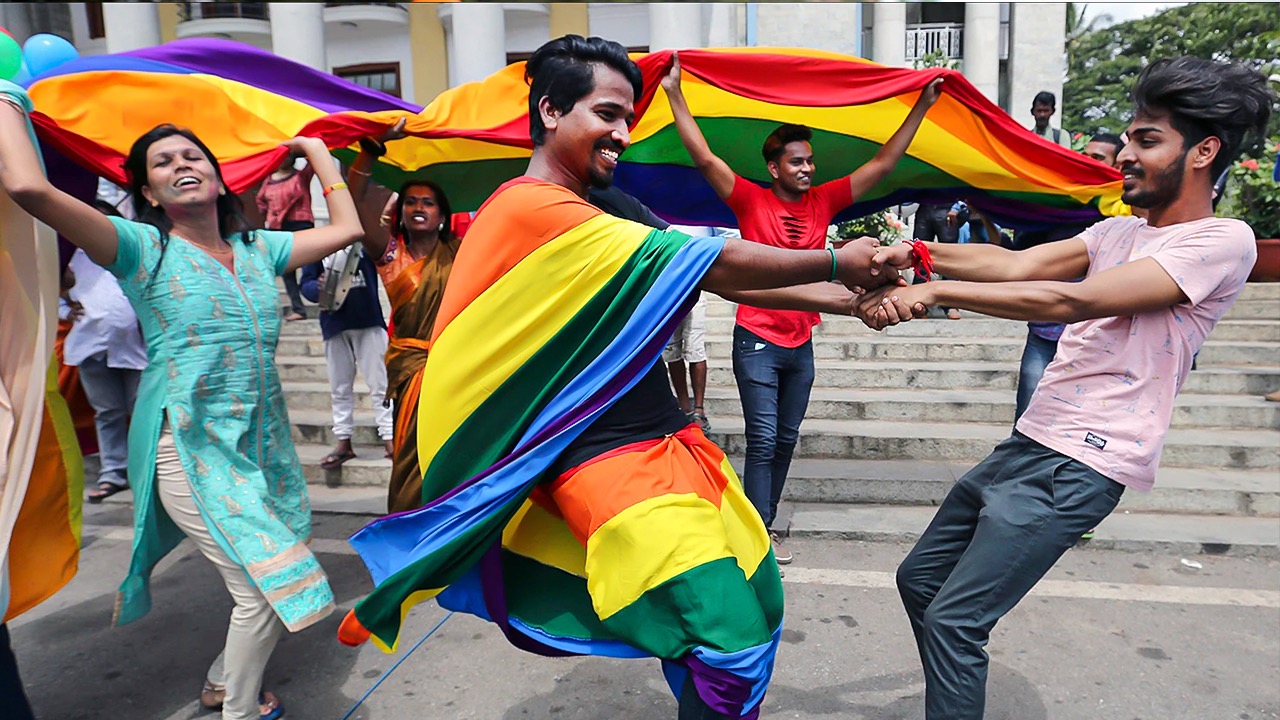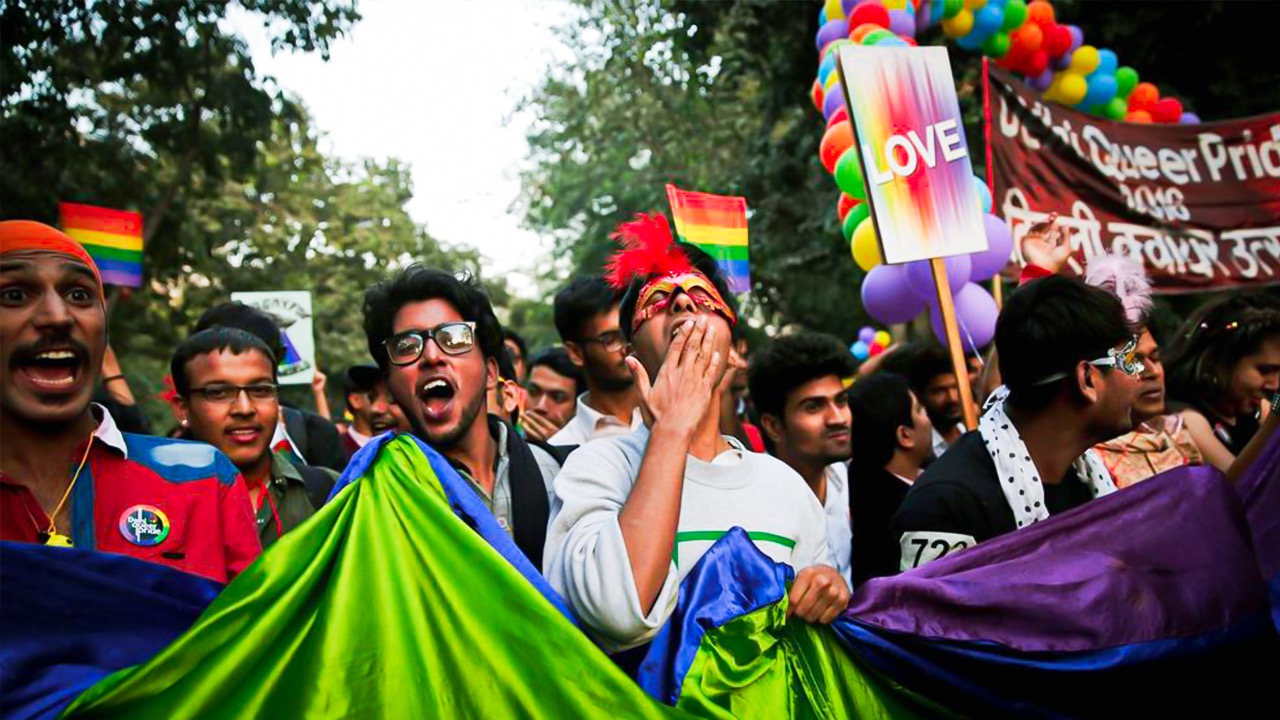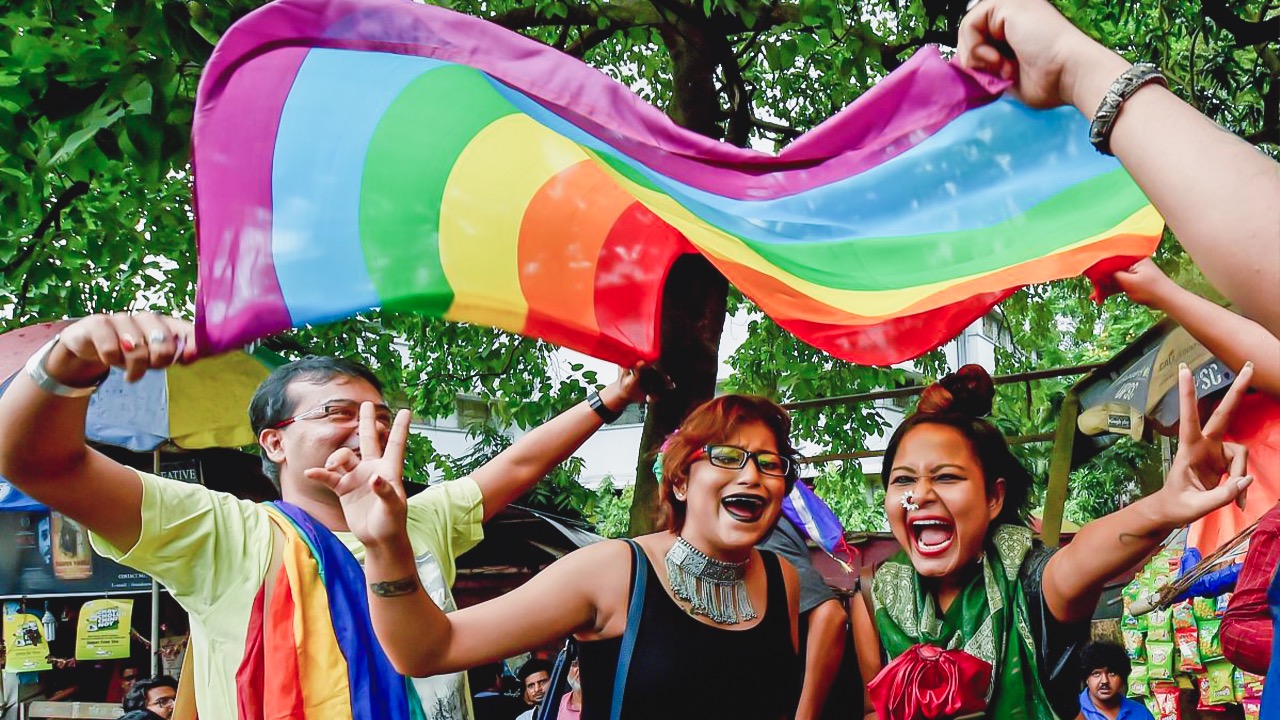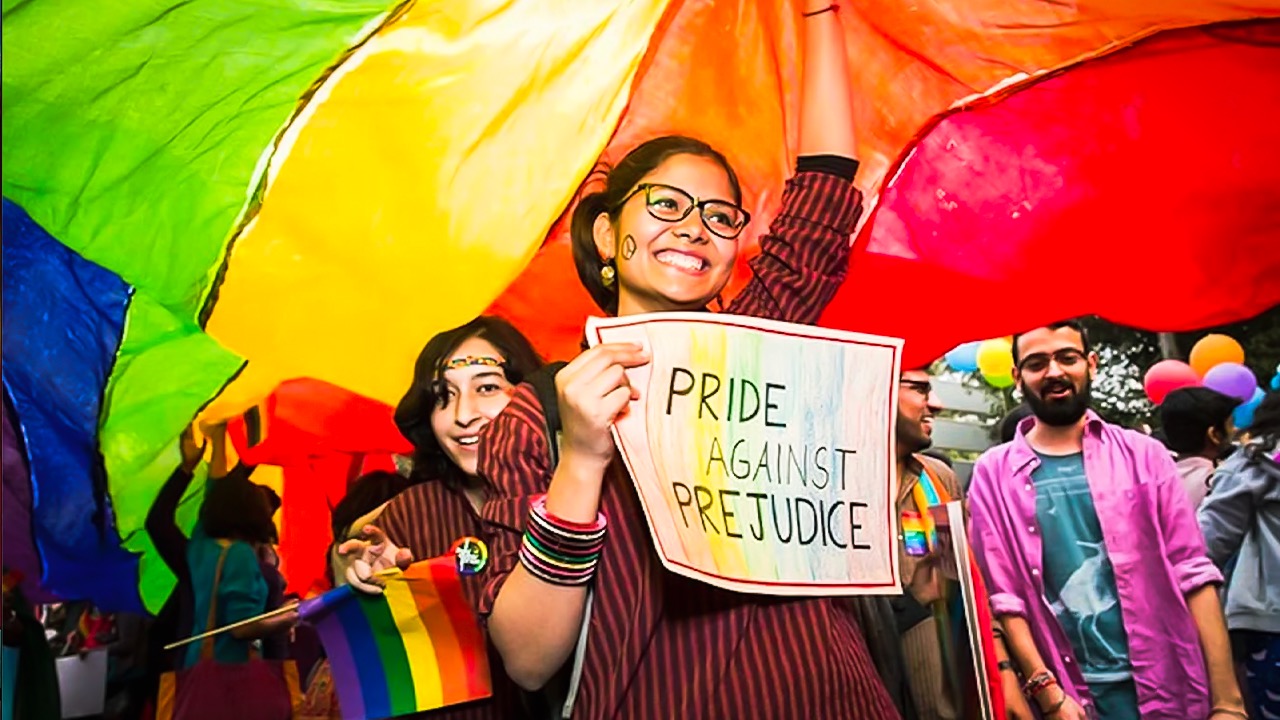
The beginning of what today is known as the Pride parade was started in the early hours of 28th June 1969. The city police were harassing and beating up the queer patrons in Stonewall Inn near Manhattan, NYC. This proved to be the match that lit the fire of anger brewing over countless years in the oppressed members of the LGBTQIA+ community. Over 500 people – drag queens, lesbians, transgender people, gay men, and many others joined forces and attacked the Police. By the next day, the numbers had grown up to a thousand. That day, for the first time, the community had risen against the oppressive anti-gay legal system and the many institutions enforcing it.
A YEAR FROM THAT MORNING, THE CHRISTOPHER STREET LIBERATION MARCH, I.E. THE WORLD’S FIRST PRIDE PARADE TOOK PLACE IN NEW YORK CITY.
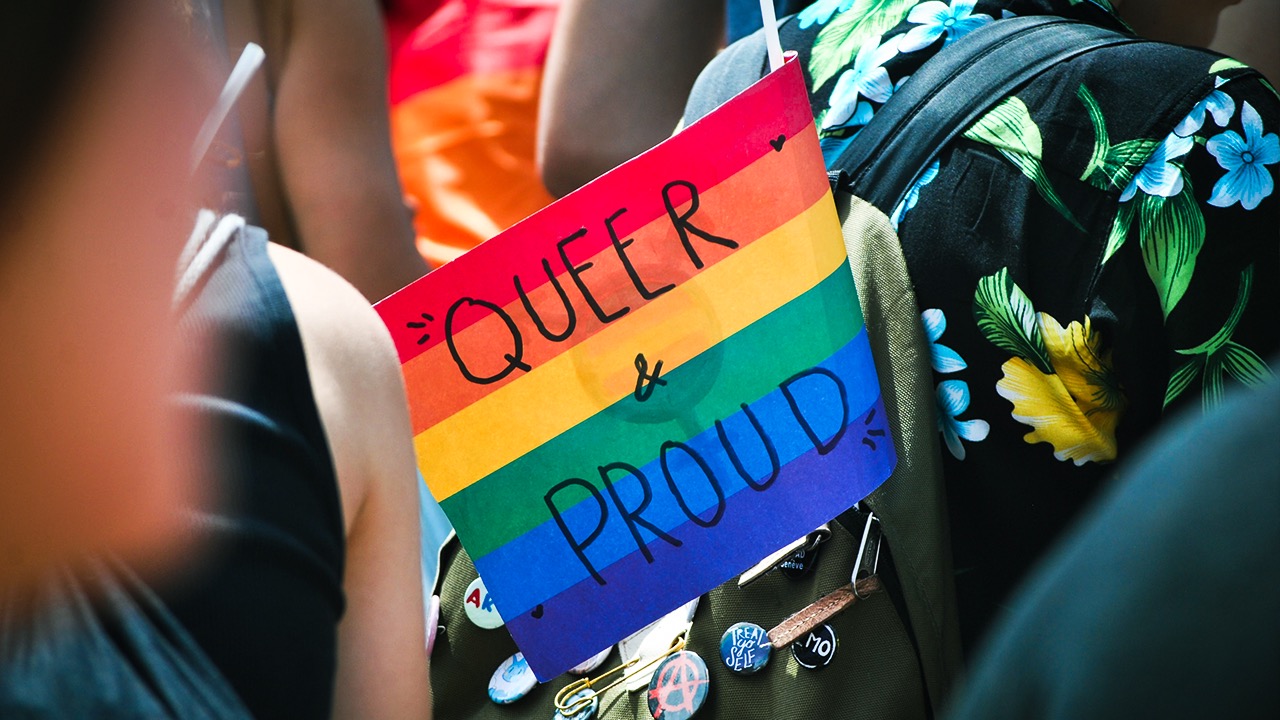
The term Pride was coined by Craig Schoonmaker. He explained, “First thought was ‘Gay Power’. I didn’t like that, so I proposed gay pride. There’s very little chance for people in the world to have power. People did not have power then; even now, we only have some. But anyone can have pride in themselves, and that would make them happier as people, and produce the movement likely to produce change”.
LGBT History Month or now more commonly known as Pride month was founded in 1994 by a teacher called Rodney Wilson.
THE FIRST PRIDE PARADE IN INDIA WAS HELD IN KOLKATA ON 2ND JULY 1999, CALLED THE KOLKATA RAINBOW PRIDE WALK.
The march was held in Kolkata due to its rich history and close touch with several human rights movements such as feminism, Dalit rights, rights of the disabled people, child rights, etc. It has been 23 years since the 1999 Kolkata Rainbow Pride Walk, and today, Pride Parades are held in more than 20 Indian cities. Here is a brief walk through how Pride is celebrated in different parts of India.
Table of Contents
Bangalore
Bangalore’s Pride Parade, called Bengaluru Namma Pride March, has been held in December annually since 2008. This event is preceded by a month of queer events called Queer Habba. CSMR (Coalition for Sex Workers and Sexuality Minority Rights) organises it with the support and participation of major corporate companies like Goldman Sachs, Google, and IBM.
Chennai
Since 2009, the Chennai Rainbow Parade has been held annually at Rajarathinam Stadium in June. It is organised by Tamil Nadu Rainbow Coalition, but unlike Bangalore, there’s a strict anti-corporate sponsorship rule that is implemented. Today, there are more than 1000 attendees.
Delhi
Delhi Queer Pride Parade started on 30th June 2008. Due to being the first Pride Parade held in the national capital, it garnered massive media attention and was one of the critical driving forces toward abolishing section 377. The Delhi Pride parade, which has over 5000 attendees annually, openly supports movements for Dalit rights, feminism, and disability rights.
Mumbai
The Mumbai Pride Parade, more commonly known as Queer Azaadi, was first held on 16th August, after Indian Independence day in 2008. While the initial March had up to 500 participants, today, the number has grown up to 10,000, making it one of the most significant pride events held in the country.
Guwahati
The first Pride Parade in the North East was held in 2014 in Guwahati, Assam and has since been held annually in the first week of February. It came into being due to Guwahati’s participation in a Global Day of Rage – a day observed as a sign of protest against the reinstatement of section 377 in 2013.
The many protests by members of the LGBTQIA+ community and its supporters across the country celebrated a victory on September 6, 2018, with the overturning of Section 377 by the Supreme Court. While there are still many battles to be fought to make India a genuinely LGBTQIA+ friendly nation, the pride parades will continue to be a symbol of governmental oppression, historical prejudice and, of course, the pride of openly embracing yourself and your sexuality.

